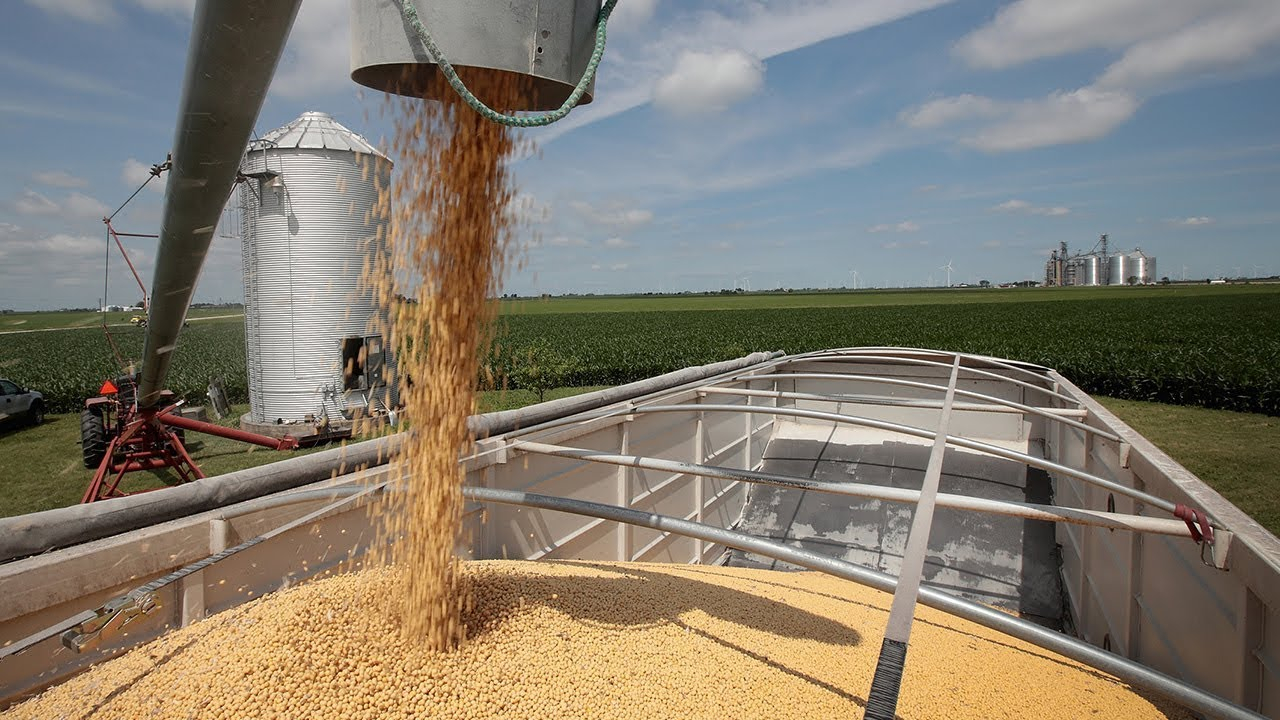
Business
18:00, 16-Jun-2018
US-China trade war sparks worries among US farmers
By CGTN’s Dan Williams
01:47

A “Washington-led disaster”, said the Illinois Soybeans Association referring to the potential trade war with China a few months ago. Now it looks like their fears are coming true, with the US and China announcing trading tariffs against each other.
The US government announced on Friday the long-threatened trade tariffs on tens of billions of dollars worth of Chinese goods, sparking an immediate retaliation from Beijing on an equivalent of US products including agricultural goods, notably soybeans.
"It's no longer a negotiating tactic, it's a tax on their livelihoods," the Farmers for Free Trade lobbying group said of the prospects for escalating tariffs, AFP reported.
It's estimated that the US will grow around 89 million acres of soybeans this year and the soybean has become the king of US crops, exceeding corn, for the first time since 1983.
China is the largest buyer of soybeans, buying 12 billion US dollars in 2017, about 30 percent of the US harvest.
Meanwhile, 57 percent of the total US crop is exported to China market valued at nearly 14 billion dollars.
Crop prices have seen an overall price decline of roughly 15 percent since 2012.
At this moment, the last thing US farmers want to see is a trade war with China.
"This news could really not be coming at a worse time for American farmers. We've been faced with low commodity prices for a number of years. Now all this is doing is adding concern and uncertainty for farmers. I would say if it goes to a trade war that would be devastating for agricultural communities," said US farmer Michele Aavang.
"Soybean farmers are faced with natural disasters all the time, whether it is floods or tornados, or what-not. We are used to that. But, what we are not used to is a Washington-led disaster. And, at a time when soybean prices are already pretty low, as soybean farmers, it is our number one issue. Maintaining trade relations, maintaining international markets is our number one issue," said Mark Albertson from Illinois Soybeans Association.
(With inputs from AFP)

SITEMAP
Copyright © 2018 CGTN. Beijing ICP prepared NO.16065310-3
Copyright © 2018 CGTN. Beijing ICP prepared NO.16065310-3